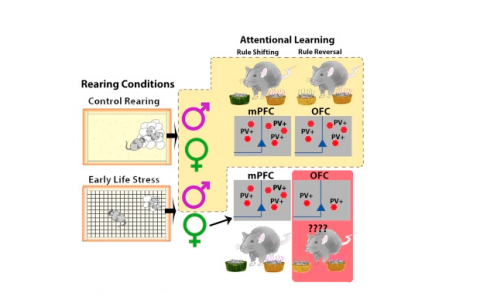Early-life stress hinders development of neurons in mice, causing attention disorders

Women are roughly twice as likely as men to develop depression, anxiety and other stress-related problems, including difficulty with attention, and new research from Brown University neuroscientists sheds light on the biological reasons why.
Studying mice whose mothers had inadequate supplies to make nests — a model for early-life stress in humans — the researchers found that only female mice developed problems with attention, in part because they had fewer “tuning” neurons in the part of the brain that makes sense of rules and regulating emotions.
The findings were published on Tuesday, Nov. 27, in Cell Reports.
“The million-dollar questions are: What’s driving the development of depression and anxiety symptoms, and co-occurring attentional problems, and why is stress a predisposing factor?” said Kevin Bath, an assistant professor of cognitive, linguistic and psychological sciences at Brown.
“If we can understand the neurobiological mechanisms of how the brain is developing differently as a consequence of early-life stress, using our animal model, then we can better understand what types of things we need to do to get children back on the right course for healthy brain development.”



